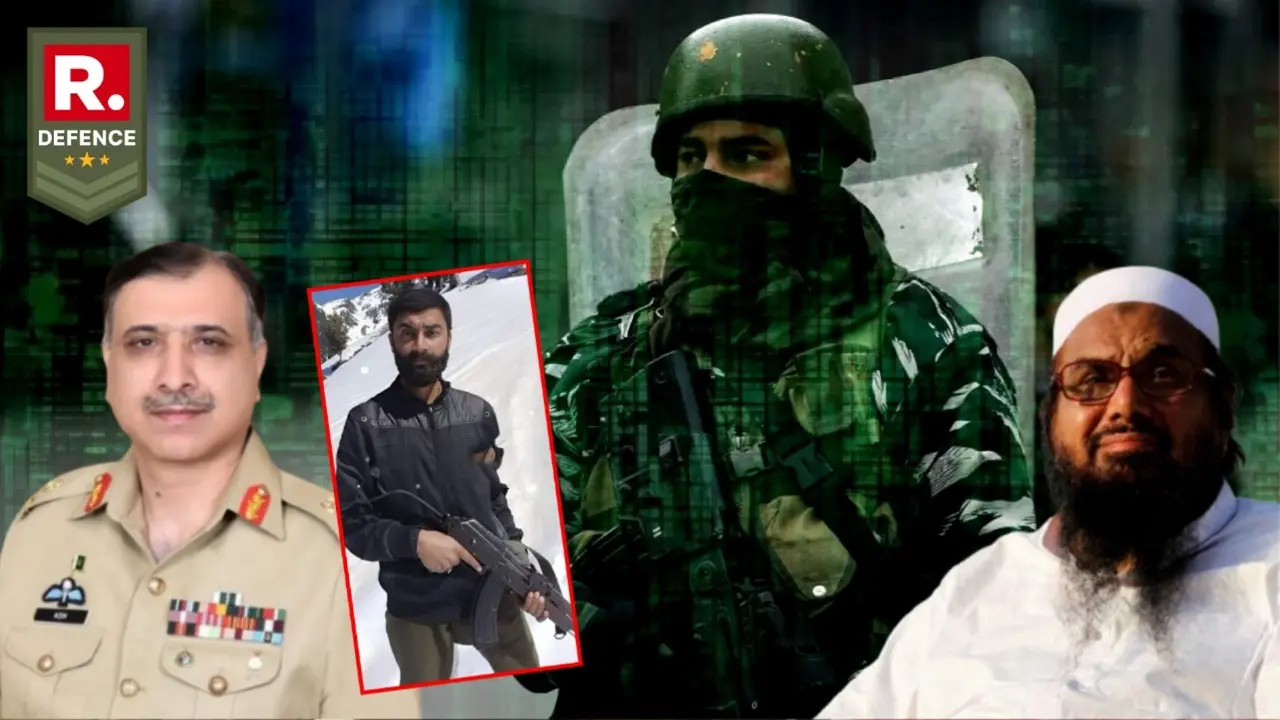Updated 22 April 2025 at 15:38 IST
Lashkar-e-Taiba Hosts Tribute for Slain Terrorists in PoJK, Threatens India with More Beheadings, Attacks
A Lashkar-e-Taiba (LeT) rally held on April 18 in Khai Gala, Rawalkot (PoJK), has raised fresh concerns over Pakistan’s continuing patronage of terrorism.
- Defence News
- 5 min read

Rawalkot, Pakistan Occupied Kashmir - In a brazen display of support for terrorism, a Lashkar-e-Taiba (LeT) gathering held in Khai Gala, Rawalkot in Pakistan -occupied Jammu and Kashmir (PoJK), turned into a venomous anti-India platform. The so-called tribute conference on April 18, 2024, was organized to honour slain terrorists Akif Haleem and Abdul Wahab—both eliminated by Indian security forces under Operation All-Out. Despite assurances from the Awami Action Committee that no terror elements would be present, the event became a podium for threats, hate speech, and open glorification of jihadist violence.
The most chilling moment came when Abu Musa, a known LeT commander now heading the Jammu Kashmir United Movement (JKUM), took the mic. "Jihad will continue, guns will rage and beheading will continue in Jammu and Kashmir," he declared, stoking fears of escalated infiltration attempts. Intelligence sources have verified the footage, identifying the presence of multiple active LeT cadres and sympathisers on stage.
LeT and PAFF Family Honoured as ‘Martyrs’; Security Provided by Pakistani Forces
Two terrorists—Akif Haleem and Abdul Wahab—were at the centre of the commemoration. Both belonged to the same household, and both were neutralised by Indian forces in separate high-profile encounters. Haleem was gunned down in Kupwara on March 17, 2025, by the 21st Battalion of the Rashtriya Rifles. Wahab, a LeT/PAFF affiliate, was eliminated in Sopore on April 24, 2024. Their killings were strategic victories under India’s enduring Operation All-Out, a comprehensive counter-terror campaign involving the Army, CRPF, J&K Police, BSF, and IB.
What further exposes Islamabad’s duplicity is the reported presence of Pakistani state security personnel in uniform, providing security to the venue. A tweet by OsintTV, a credible Open-Source Intelligence gatherer, showed armed state security personnel at the gathering. This aligns with longstanding allegations that Pakistan’s Inter-Services Intelligence (ISI) continues to back terrorist proxies in the region, turning PoJK into a launchpad for cross-border attacks.
Advertisement
ISI’s Proxy Warfare: The Mirage of Crackdowns and the Reality of Jihadi Festivities
The event also exposes the farcical nature of Pakistan’s counter-terror commitments to the international community. While Islamabad claims to have taken action—such as the delayed prosecution of 26/11 handler Sajid Mir in 2022—it has consistently allowed other terror masterminds like Jaish-e-Mohammed’s Masood Azhar to operate with impunity. U.S. State Department reports and international watchdogs have repeatedly flagged Pakistan’s selective action, which is often cosmetic and driven by FATF pressure rather than genuine political will.

India has time and again reiterated that Pakistan remains the epicentre of state-sponsored terrorism. With repeated instances like the Khaigala rally, New Delhi's concerns are only vindicated further. The global community must question how a country that claims to be a victim of terrorism itself can allow such open glorification of terror on its soil.
Advertisement
PoJK’s Radicalisation Deepens: From Civil Dissent to Terror-Sympathy
The Awami Action Committee, which had initially opposed the event and had been given assurances that it would be apolitical, now finds itself cornered. The betrayal of promises to civil society representatives further underscores how even local resistance to radicalisation is undermined by the deep-rooted nexus between Pakistan’s military establishment and jihadist groups. With regular citizens increasingly frustrated with inflation, misgovernance, and lack of freedom in PoJK, events like these only push the region into deeper chaos.
For India, the implications are grave. Such developments are not isolated but symptomatic of Pakistan’s long-standing hybrid war doctrine—combining asymmetric terror operations with overt diplomatic deniability. The resurgence of terror threats, glorification of beheadings, and public mobilisations in PoJK could lead to renewed infiltration bids this summer.
India’s Strategic Response: Reinforce Borders, Expose Pakistan
In light of this event, Indian agencies are expected to ramp up counter-infiltration grid strength across the LoC and launch targeted information warfare campaigns to expose Pakistan’s duplicity globally. Diplomatic missions are likely to brief key allies, including the United States, France, and the Gulf states, to isolate Pakistan further on global platforms.

The gathering at Khai Gala wasn’t just a tribute—it was a chilling reminder that for Pakistan, terrorism remains a state utility. As India strengthens its internal security and international partnerships, it must continue to counter not only the bullet but also the narrative—exposing how Pakistan enables and glorifies those who have blood on their hands.
Watch- Expose: Pakistan’s Terrorism Infrastructure — An Anatomy of State-Sponsored Extremism
Published By : Yuvraj Tyagi
Published On: 22 April 2025 at 15:01 IST
